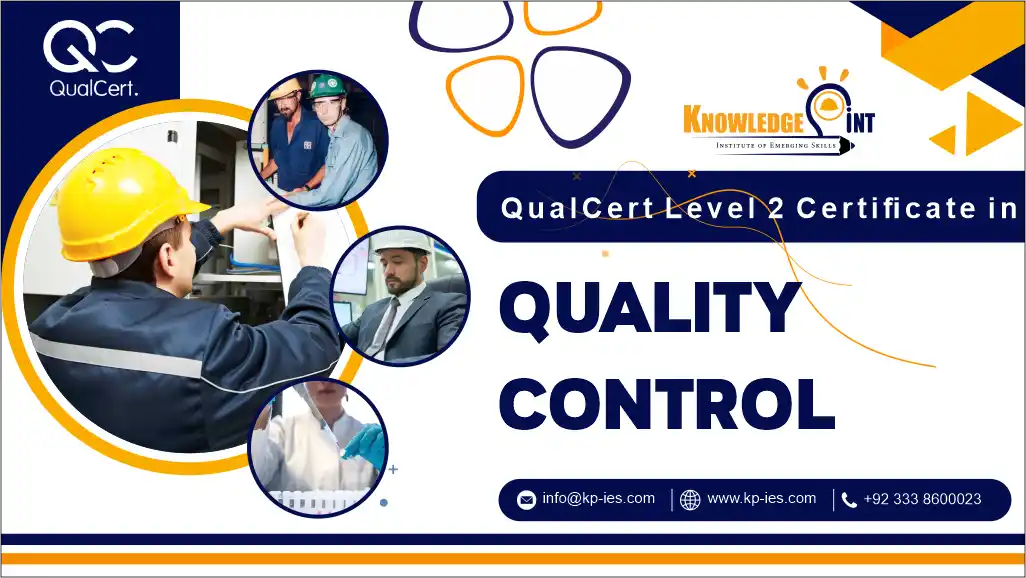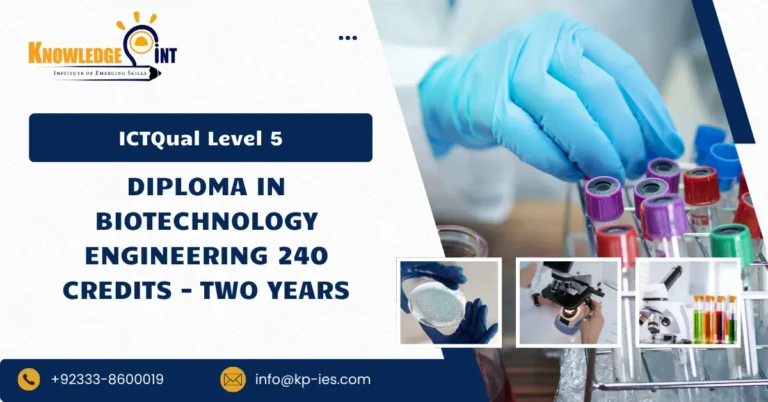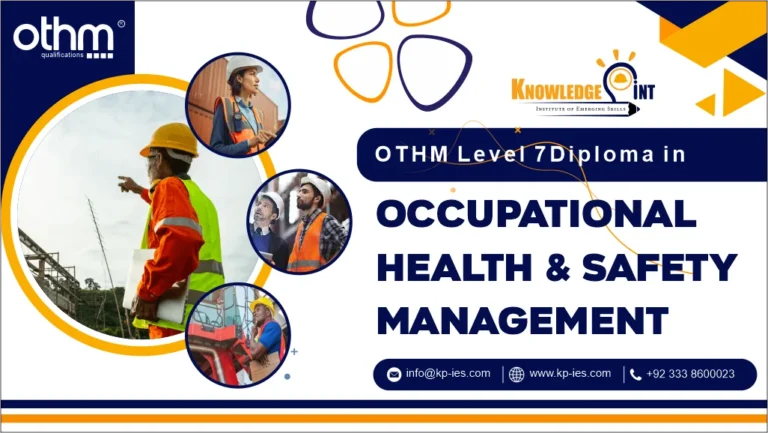Quality control is the cornerstone of every successful organization, ensuring products and services meet stringent standards of excellence. For professionals seeking to deepen their expertise and advance their careers in this critical field, the QualCert Level 2 Certificate in Quality Control (QC) offers a comprehensive pathway to mastery. Designed to build on foundational knowledge, this certificate equips individuals with advanced skills, practical insights, and industry-relevant competencies necessary to excel in quality assurance roles across diverse industries.
The QualCert Level 2 Certificate in Quality Control (QC) is an intermediate-level qualification that extends beyond basic principles to cover advanced concepts, methodologies, and best practices in quality assurance and control. It is tailored for individuals who have completed foundational training or gained experience in quality control and are ready to take their careers to the next level. This certificate program focuses on enhancing technical skills, leadership capabilities, and strategic thinking to drive continuous improvement and uphold organizational excellence.
The QualCert Level 2 Certificate in Quality Control (QC) is your gateway to becoming a recognized leader in quality assurance and control. By acquiring advanced skills, mastering industry-relevant methodologies, and earning a respected qualification, you’ll be well-equipped to drive continuous improvement, uphold quality standards, and lead transformative initiatives within your organization. Embrace the opportunities offered by this certificate to advance your career, contribute to organizational success, and make a significant impact in the dynamic and evolving field of quality control.
Course Overview
The QualCert. Level 2 Certificate in Quality Control consists of 11 mandatory units which are as follows.
The learning outcomes of QualCert. Level 2 Certificate in Quality Control include:
1. Advanced Quality Control Principles
- Advanced Concepts: Develop a comprehensive understanding of advanced quality control principles, theories, and methodologies.
- Strategic Application: Apply advanced quality control strategies to optimize processes, improve product/service quality, and enhance organizational performance.
- Integration: Integrate quality control principles with organizational goals, ensuring alignment with strategic objectives and customer requirements.
2. Statistical Process Control (SPC) Mastery
- Advanced SPC Techniques: Master advanced statistical process control techniques to monitor, analyze, and control variability in manufacturing and service processes.
- Process Improvement: Use SPC data to identify trends, predict potential issues, and implement proactive measures for process improvement.
- Real-time Decision Making: Apply SPC methods for real-time decision-making to ensure consistent quality and operational efficiency.
3. Root Cause Analysis and Problem Solving
- Advanced RCA Techniques: Utilize advanced root cause analysis (RCA) methodologies such as fault tree analysis, fishbone diagrams, and Pareto analysis.
- Problem Resolution: Develop skills to identify root causes of complex quality issues and implement effective corrective and preventive actions (CAPA).
- Continuous Improvement: Apply RCA findings to drive continuous improvement initiatives and prevent recurrence of quality issues.
4. Quality Control Tools and Techniques
- Advanced Tools: Apply advanced quality control tools such as Design of Experiments (DOE), Failure Mode and Effects Analysis (FMEA), and Control Plan Development.
- Tool Selection: Select and use appropriate tools based on specific quality control challenges and objectives.
- Process Optimization: Implement tools effectively to optimize processes, reduce waste, and enhance product/service quality.
5. Quality Management Systems (QMS) and Standards
- Advanced QMS Implementation: Understand advanced techniques for developing, implementing, and maintaining effective quality management systems (QMS).
- ISO Standards: Ensure compliance with ISO 9001 and other relevant quality standards through effective QMS integration and audits.
- Continuous Compliance: Monitor and improve QMS processes to maintain regulatory compliance and achieve organizational goals.
6. Advanced Inspection and Testing
- Advanced Inspection Techniques: Learn advanced methods for conducting inspections and testing products/services to ensure compliance with quality standards.
- Quality Assurance: Implement rigorous inspection protocols to verify product/service conformity and meet customer expectations.
- Quality Improvement: Use inspection data to identify areas for improvement and enhance overall product/service quality.
7. Quality Auditing and Compliance
- Advanced Audit Practices: Conduct advanced quality audits, including internal and supplier audits, to assess QMS effectiveness and compliance with standards.
- Audit Reporting: Prepare comprehensive audit reports that document findings, non-conformities, and recommendations for corrective actions.
- Regulatory Adherence: Ensure adherence to regulatory requirements and industry standards through effective audit practices and compliance measures.
8. Advanced Statistical Analysis
- Advanced Statistical Techniques: Apply advanced statistical methods such as regression analysis, hypothesis testing, and multivariate analysis to analyze quality data.
- Data Interpretation: Interpret statistical findings to make data-driven decisions, identify trends, and predict future quality outcomes.
- Process Capability: Assess process capability and performance using statistical analysis to optimize processes and achieve quality objectives.
9. Leadership in Quality Control
- Strategic Leadership: Develop leadership skills to lead quality control teams, drive organizational change, and promote a culture of quality excellence.
- Team Management: Effectively manage quality control teams, assign responsibilities, and inspire team members to achieve quality goals.
- Stakeholder Engagement: Collaborate with stakeholders across departments to align quality control initiatives with organizational objectives and customer expectations.
10. Ethical Considerations in Quality Control
- Ethical Standards: Understand ethical issues and considerations in quality control practices, including confidentiality, integrity, and professional conduct.
- Compliance and Integrity: Uphold ethical standards in decision-making, data handling, and interactions with stakeholders to maintain trust and credibility.
- Social Responsibility: Promote ethical practices that prioritize customer safety, environmental sustainability, and societal well-being in quality control processes.
11. Capstone Quality Project
- Project Management: Plan, execute, and manage a capstone quality project that applies learned principles, techniques, and methodologies.
- Real-world Application: Apply theoretical knowledge to solve practical quality control challenges and demonstrate proficiency in quality management.
- Presentation and Evaluation: Present findings and outcomes of the capstone project, receive feedback, and reflect on lessons learned for continuous improvement.
Course Benefits of the QualCert. Level 2 Certificate in Quality Control :
1. Specialized Expertise
- Auditing Proficiency: Gain specialized knowledge and skills in auditing energy management systems according to the ISO 50001:2018 standard.
- Industry Recognition: Earn a globally recognized qualification that demonstrates your proficiency as an energy management systems auditor.
2. Career Advancement
- Expanded Career Opportunities: Qualify for roles such as Lead Energy Auditor, Energy Management Consultant, or Compliance Officer.
- Higher Earning Potential: Enhance your value to employers and increase your earning potential with specialized expertise in energy management auditing.
3. Industry-Relevant Skills
- Practical Application: Acquire practical skills and techniques for planning, conducting, and documenting energy management system audits.
- Effective Communication: Develop communication skills to interact with auditees, audit teams, and stakeholders effectively.
4. Contribution to Sustainability
- Promotion of Energy Efficiency: Play a key role in promoting energy efficiency and reducing environmental impact within organizations.
- Support for Sustainable Practices: Assist organizations in implementing and maintaining energy management systems that support sustainability goals.
5. Quality Assurance
- Compliance Assurance: Help organizations achieve compliance with ISO 50001:2018 requirements and other relevant regulatory standards.
- Risk Mitigation: Identify areas of non-conformance and provide recommendations for corrective actions to mitigate risks.
6. Continuous Professional Development
- Lifelong Learning: Engage in continuous professional development by staying updated with the latest developments and trends in energy management auditing.
- Networking Opportunities: Connect with industry professionals, auditors, and experts, expanding your professional network and opportunities.
7. Organizational Benefits
- Improved Performance: Contribute to the improvement of organizational energy performance through effective auditing and recommendations for continuous improvement.
- Enhanced Reputation: Help organizations build a positive reputation for their commitment to energy management and sustainability practices.
8. Personal Growth
- Leadership Development: Develop leadership skills to effectively manage audit teams, delegate tasks, and ensure audit objectives are met.
- Confidence Boost: Gain confidence in your abilities as an energy management systems auditor through practical training and hands-on experience.
The QualCert Level 2 Certificate in Quality Control (QC) provides a solid foundation in quality management principles and practices, opening up various opportunities for career advancement and further education. Here’s a detailed look at the future progression options for graduates of this qualification:
1. Advanced Certifications
After completing the Level 2 Certificate, individuals can pursue more advanced certifications to deepen their knowledge and skills in quality control and quality management. Some options include:
- QualCert Level 3 Certificate in Quality Control
- QualCert Level 3 Diploma in Quality Control
- Six Sigma Green Belt Certification
- ISO 9001 Lead Auditor Certification
2. Higher Education
Graduates may choose to further their education by enrolling in diploma or degree programs related to quality management, industrial engineering, or operations management. Pursuing higher education enhances theoretical knowledge and practical skills, opening up more advanced career opportunities.
3. Quality Control Specialist
With the foundational knowledge from the Level 2 Certificate, individuals can work as Quality Control Specialists in various industries. These roles involve implementing quality control procedures, conducting inspections and tests, and ensuring products/services meet quality standards.
4. Quality Assurance Technician
Graduates can advance to positions such as Quality Assurance Technicians, where they support quality assurance processes by performing audits, monitoring compliance with quality standards, and assisting in the development of quality documentation and reports.
5. Continuous Improvement Coordinator
Professionals can take on roles focused on continuous improvement, such as Continuous Improvement Coordinator or Lean Coordinator. These positions involve identifying areas for process improvement, implementing Lean principles, and facilitating Kaizen events to enhance operational efficiency.
6. Industry-Specific Quality Roles
The knowledge gained from the Level 2 Certificate can be applied in industry-specific quality roles, such as:
- Quality Control Technician in Manufacturing
- Quality Inspector in Construction
- Quality Assurance Associate in Pharmaceuticals
- Quality Analyst in Food and Beverage
7. Entry-Level Supervisory Roles
With experience and further training, graduates can move into entry-level supervisory roles in quality control, such as Quality Control Supervisor or Quality Assurance Team Leader. These roles involve overseeing quality control teams, coordinating quality activities, and ensuring compliance with quality standards.
8. Specialized Training
Graduates can pursue specialized training in areas such as:
- Statistical Process Control (SPC)
- Root Cause Analysis (RCA)
- Failure Mode and Effects Analysis (FMEA)
- Total Quality Management (TQM)
9. Consulting and Advisory Roles
Experienced professionals may become Quality Control Consultants or Advisors, offering their expertise to organizations seeking to improve their quality management systems, achieve certifications, and enhance overall quality performance.
10. Professional Associations and Networking
Joining professional associations, such as the American Society for Quality (ASQ) or the Chartered Quality Institute (CQI), provides access to resources, networking opportunities, and continued professional development. Active participation in these associations can lead to career advancement and recognition in the field of quality control.
The QualCert Level 2 Certificate in Quality Control (QC) is a stepping stone to a variety of career paths and further educational opportunities. By building on this foundation, individuals can advance to higher-level certifications, pursue specialized training, and take on more challenging and rewarding roles within the field of quality management. Embrace the future progression opportunities offered by the Level 2 Certificate and continue to develop your expertise and career in quality control.







